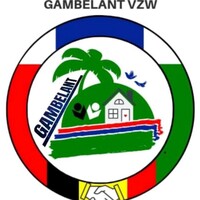
GAMBELANT vzw,ON 0524.999.137, Guldensporenstraat 45, 2140, Antwerpen
powered by TidyHQSafe Drinking Water For Samikuta Village in Gambia
Safe Drinking Water For Samikuta Village in Gambia
1. Executive Summary
The borehole drilling project in Samikuta, Gambia, aims to provide a sustainable water supply to the village. This initiative addresses the chronic water scarcity in the village by tapping into underground water resources through the construction of a borehole. The project improve access to clean water for domestic use, enhancing the overall quality of life for the community while supporting local development.
- Project Title: Gambelant Borehole Drilling Project in Gambia
- Location: Samikuta Village, Kantora District, Upper River Region, The Gambia
- Project Duration: 18/01/2021 -18/07/2021
- Total Cost: Four hundred and fifty-five thousand, two hundred Dalasi (455,200.00)
- Key Outcomes: One borehole, Ten Taps spread within the village, two 2000L tanks, water pump powered by solar energy
2. Objectives:
- Provide reliable access to clean and potable water for approximately two hundred and fifty residents of Samikuta.
- Support agricultural productivity and livestock rearing through a dependable water source.
- Promote health and hygiene by reducing reliance on unsafe water sources.
- Foster community engagement and capacity building in water management.
Project Justification: The community faces water scarcity issues due to the inability of the national water company to provide water to remote villages in The Gambia, and the borehole will address this by providing 4000L of water in every hour to about 200 people in the village.
Project Partners: Stad Antwerpen and 4DE Pijlersteunput Vlaamse Noord-zuidbeweging 11.11.11.VZW
3. Project Scope:
- Site Assessment: A geological survey to identify optimal drilling sites with adequate water yield.
- Borehole Construction: Drilling and installation of borehole equipped with solar-powered pumps.
- Water Storage and Distribution: Installation of water storage tanks and simple distribution systems, allowing easier access to water throughout the village.
- Maintenance and Sustainability: Establishment of a community water management committee to oversee the long term maintenance of the borehole system and ensure sustainable water.
4. Key Deliverables:
- Successful drilling and completion of at least one borehole.
- Installation of water storage and pumping systems.
- Training of local personnel for the operation and maintenance of the system.
- Community outreach programs on water conservation and hygiene.
5. Project Implementation
5.1 Project Phases The project was implemented in the following phases:
Phase 1: Site identification and hydrogeological survey.
Phase 2: Drilling and installation of borehole casing and screens.
Phase 3: Pump installation and testing.
Phase 4: Community sensitization and capacity building on borehole maintenance.
Phase 5: Final handover and project completion.
5.2 Challenges Encountered
- Weather Conditions: extreme dryness that delayed operations.
- Technical Challenges: Difficult drilling terrain.
- Solutions: To overcome these challenges, the team use the best drilling machine suitable for very dry terrains.
6. Financial Summary
The estimated cost for the borehole drilling project is Four hundred and fifty-five thousand, two hundred dalasi’s, which covers site surveys, equipment, drilling operations, storage tanks, and labour. The project is funded through a combination of Gambelant contribution, Stad Antwerpen subsidy, and 4DE Pijlersteunput Vlaamse Noord-zuidbeweging 11.11.11.VZW contribution.
- Initial Budget: D455,200.00
- Actual Cost: D455,200.00
Cost Breakdown:
- Two tanks each 2000L: D50,00.00
- Drilling Costs: D150,000.00
- Solar Mach Gurum force water pumping machine: D90,000.00
- Four Solar Panels: D32,000.00
- Ten Taps: D10,000.00
- Other Costs (Double tank stand, Pipes, plumping service, etc.): D123,200.00
- Variance: No variation in the cost.
7. Community Benefits:
- Improved access to clean water, reducing time spent fetching water, especially for women and children.
- Enhanced food security through better irrigation for crops and water for livestock.
- Health improvements by minimizing waterborne diseases.
- Economic development by supporting local agriculture and reducing reliance on imported water sources.
Sustainability: The community has been trained on borehole maintenance and sustainable water use, ensuring the borehole’s longevity.
8. Monitoring and Evaluation
The monitoring and evaluation strategy ensures that the borehole continues to function effectively, and the project objectives are sustained.
- Regular Maintenance Schedule: The borehole will undergo maintenance checks, overseen by GADAL 3 Company for one year without any cost to the village or Gambelant but there after the village will take total responsibility for the maintenance.
- Water Quality Monitoring: Ongoing water quality tests will be conducted every year to ensure water remains safe for consumption.
- Community Feedback Mechanism: A feedback system has been established to report any issues with the borehole’s performance or water availability to GADAL 3 company via the village development committee chairperson.
9. Lessons Learned
- Planning: Effective planning and community involvement were critical to the success of the project.
- Challenges with Terrain: The drilling team faced difficulties due to sandy soil but adjusting the drilling techniques helped overcome these challenges.
- Community Engagement: Early engagement of the community in maintenance training improved ownership of the borehole and is expected to ensure its sustainability.
10. Recommendations
Based on the experience gained, the following recommendations are made for future borehole drilling projects:
- Water Resource Management: Encourage the village development committee to oversee borehole maintenance and equitable distribution.
- Follow-Up Support: The contractor will continue technical support for at least one year without cost and as long as possible with cost been paid by the village development committee to ensure long-term functionality.
- Expansion of Project: Gambelant should consider additional boreholes projects in adjacent villages facing similar water scarcity issues.
11. Conclusion
This borehole drilling project is a crucial step toward addressing water scarcity in Samikuta, Gambia. It provides long-term, sustainable solutions to the water needs of the community, contributing to the region’s social and economic development. By investing in this project, stakeholders have help to transform the lives of residents, ensuring better health, productivity, and quality of life for generations to come.

